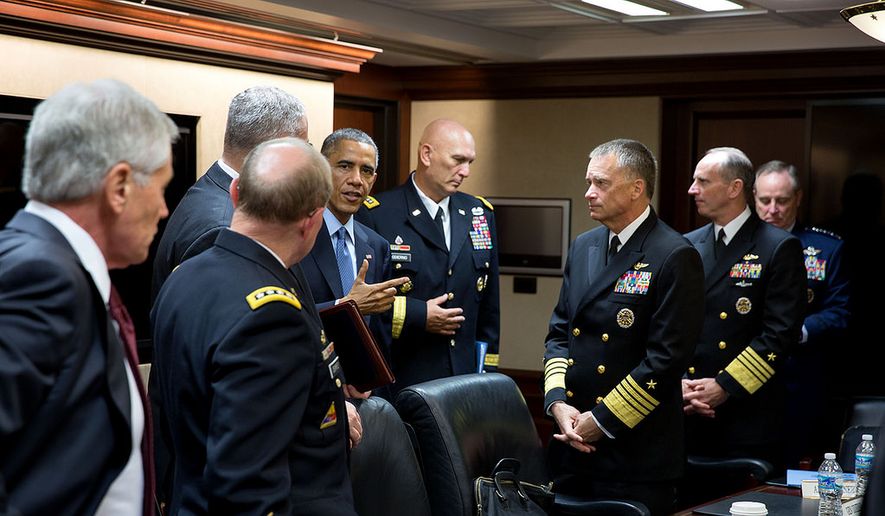OPINION:
Secretary of State John Kerry is exactly the mandarin that George Wallace was talking about when he warned about bureaucrats “who can’t park a bicycle straight.” Mr. Kerry can’t ride one, either, and has the bruises to prove it. He’s in Lausanne now, polishing the last concessions President Obama is determined to make to enable the Iranians to protect their path to the Islamic bomb. Mr. Obama wants the deal to be the foreign-policy legacy of his eight years in the White House. He need not fear.
Most Americans are concerned, as they should be, and so are some of the generals and admirals who must deal with the effects of folly by feckless presidents. Gen. Martin Dempsey, the chairman of the Joint Chiefs of Staff visiting in Israel, recently told Gen. Gadi Eizenkot, chief of staff of the Israeli Defense Force, and Defense Minister Moshe Ya’alon, “I think [the Iranians] will invest in their surrogates. I think they will invest in additional military capability.”
Gen. Dempsey, reappointed to a second term as chairman of the Joint Chiefs, will retire shortly. He is obviously wary, as a general must be, of public disagreements with the commander in chief. But the idea of playing cozy with the mullahs will continue to be batted back and forth between the White House and the Pentagon before the lights flicker out on the Obama administration. It’s an issue Congress can’t continue to ignore in its own deliberations.
Crises over differences have erupted before between what the professional military sees as threats to the republic and how the president, with his wider view of American interests in the world, sees them. The red line between bringing the Pentagon’s concerns not only to the president but to the people is sometimes a thin one, but always a crucial one, made more difficult by the important fact that the essence of military evaluation and strategy is secrecy.
When Gen. Douglas MacArthur, home at last from the Pacific as an authentic hero of World War II, argued during the stalemated Korean War that only a confrontation with Communist China would win the day for the West, President Truman disagreed. He feared a nuclear confrontation. The general was forced to step down, honored in the breach by the public through a dramatic hero’s farewell address to the Congress but losing the argument as he began to “fade away,” as he put it in that famous valedictory. Politicians and historians will argue forever whether the Truman policy, which prevailed, created a permanent Chinese threat to peace, as Gen. Macarthur argued it would. But a catastrophic war with Communist China did not happen.
Jimmy Carter created another such crisis when he proposed withdrawing American forces from the Korean peninsula to avoid provocations from Communist North Korea. The military consensus was then — as now — that Korea was “a dagger pointing at the heart of Japan,” and the American military presence there was essential to Cold War strategy. No one on either the military or civilian side of any postwar administration has questioned Japan’s keystone role in American strategy. But when Gen. John K. Singlaub, a highly-decorated OSS officer who was instrumental in founding the Central Intelligence Agency, criticized President Carter’s position in a newspaper interview, he was recalled as the commander of American forces in South Korea. Drummed out of military service, he continued campaigning until the Carter initiative was exiled to the Island of Trashed Bad Ideas. He, like Barack Obama, was left with a legacy no president wants.




Please read our comment policy before commenting.